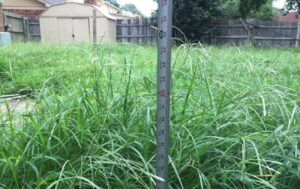
I. Understanding Your Needs and Preferences
Building your dream home starts with understanding your unique needs, preferences, and constraints. This involves determining your budget, exploring financing options, and outlining your must-have features and requirements. Whether you’re envisioning a serene countryside retreat or an urban oasis, clarity on these aspects will guide your land search process effectively.
II. Researching Potential Land Listings
Embarking on the quest for the perfect plot of land involves thorough research and exploration. Start by scouring online real estate platforms and listings, including specialized land listing websites and general real estate platforms. Additionally, tapping into the expertise of local real estate agents and brokers can provide access to exclusive listings and off-market opportunities. Don’t overlook the power of networking and connecting with landowners and developers, as word-of-mouth referrals and personal connections can often lead to hidden gems.
III. Evaluating Land Quality and Suitability
Once you’ve identified potential land listings, it’s crucial to evaluate their quality and suitability for your intended purposes. Conducting site visits and inspections allows you to assess factors such as topography, soil conditions, and drainage. Obtaining professional surveys and reports, including land surveys and environmental assessments, provides valuable insights into property boundaries, easements, and potential hazards. Consider future development potential and resale value when evaluating land, keeping an eye on local development plans and infrastructure projects that could impact the area’s growth and value over time.
IV. Navigating Legal and Regulatory Requirements
Navigating the legal and regulatory landscape is a critical aspect of land acquisition. Familiarize yourself with permitting requirements, building codes, and zoning regulations in your target area, ensuring compliance with local laws and ordinances. Clarify ownership and title issues by conducting thorough title searches and obtaining title insurance to protect against any unforeseen claims or encumbrances. Consulting legal professionals and land use attorneys can provide valuable guidance on contractual agreements, purchase terms, and potential liabilities associated with land ownership.
V. Making an Informed Decision and Closing the Deal
Armed with a wealth of information and insights, it’s time to make an informed decision and close the deal on your chosen plot of land. Compare and analyze different land options using a comparative analysis spreadsheet, weighing the pros and cons of each property against your criteria and budget. Negotiate purchase price and terms with sellers, presenting competitive offers and securing financing to finalize purchase agreements. Celebrate your success and start planning for the future as you embark on the exciting journey of building your dream home on your carefully chosen piece of land.






